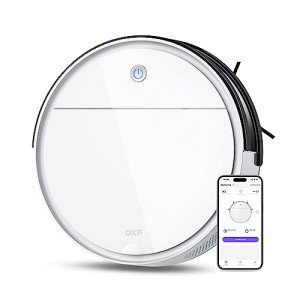The Future of Home Cleaning: A Comprehensive Guide to Robot Vacuums and Cleaners
In current years, the development of robot vacuums and cleaners has transformed the landscape of home cleaning. These autonomous gadgets integrate advanced technology with user convenience, using an option for hectic homes that look for to reduce the time invested in cleaning tasks. This article explores the types, functions, advantages, and regularly asked questions about robot vacuums and cleaners, providing a clear understanding of how they can improve every day life.
What is a Robot Vacuum and Cleaner?
A robot vacuum and cleaner is a self-operating device designed to autonomously browse and tidy floorings. It uses a mix of sensors, cameras, and expert system to map spaces and identify challenges, effectively vacuuming different surfaces consisting of carpets, wood floorings, and tiles. Some designs also include mopping abilities, permitting them to scrub and sanitize difficult floorings.
Types of Robot Vacuums and Cleaners
Robot vacuums been available in numerous types, each developed to accommodate particular cleaning needs.
| Kind Of Robot Vacuum | Description | Best For |
|---|---|---|
| Basic Robot Vacuum | Entry-level vacuums that offer necessary cleaning company without sophisticated features. | Budget-conscious users |
| Smart Robot Vacuum | Features Wi-Fi connection, app control, and voice control compatibility with wise home gadgets. | Tech-savvy people |
| Roaming Robot Vacuum | Equipped with advanced navigation systems, these vacuums expertly map large locations efficiently. | Large homes and open spaces |
| Hybrid Robot Vacuum | Integrates vacuuming and mopping functions in one gadget. | Users looking for multi-functional cleaning options |
| Pet Hair Robot Vacuum | Designed with unique brushes and strong suction capabilities to deal with animal hair. | Animal owners |
Key Features to Consider
When selecting the right robot vacuum or cleaner, purchasers should consider numerous functions that influence performance and functionality.
- Suction Power: This is crucial for deep cleaning carpets and successfully choosing up particles.
- Battery Life: Longer battery life enables the vacuum to clean bigger areas without interruption.
- Navigation Technology: Advanced designs utilize laser or camera navigation, while standard models rely on bump sensing units.
- Smart Home Integration: Compatibility with platforms like Amazon Alexa or Google Assistant can boost user experience.
- Filtering System: High-efficiency particulate air (HEPA) filters are necessary for asthma or allergy patients, catching great dust and allergens.
- Dustbin Capacity: Larger dustbins need less frequent emptying, making upkeep much easier.
- Mopping Functionality: Some models feature mopping features for cleaning difficult surfaces.
- Sound Level: Quieter robots permit inconspicuous cleaning, especially in noise-sensitive environments.
Benefits of Using Robot Vacuums and Cleaners
The adoption of robot vacuums brings numerous advantages that make them an attractive choice for lots of homes.
- Time-saving: They run autonomously, enabling users to maximize time for other activities.
- Convenience: Many models can be arranged to clean at specific times, providing flexible alternatives.
- Consistent Cleaning: Regular cleaning cycles lead to a regularly neat living environment.
- Availability: Robotic vacuums can access challenging locations, like under furniture, that conventional vacuums may have problem with.
- Improved Air Quality: Regular usage can decrease dust and irritants, contributing to a healthier home environment.
Often Asked Questions (FAQs)
1. How do robot vacuums handle barriers?
A lot of modern-day robot vacuums are equipped with sensors that help them detect and prevent obstacles. Some higher-end designs utilize sophisticated mapping technologies to create a design of the environment, allowing for more effective navigation.
2. How typically should I run my robot vacuum?
The frequency of usage depends on your family's needs. Generally, running the robot vacuum several times a week is advised, especially in homes with animals or high foot traffic.
3. Can a robot vacuum manage family pet hair effectively?
Yes, lots of designs are particularly designed for animal owners, including powerful suction and specialized brushes to tackle animal hair and dander efficiently.
4. Can I control my robot vacuum with my smartphone?
The majority of smart robot vacuums feature a corresponding mobile app that enables users to control settings, schedule cleaning sessions, and even keep track of the cleaning activity from their smart devices.
5. Do robot vacuums just work on difficult floorings?
While lots of robot vacuums are designed for tough floors, lots of designs can also successfully clean carpets, making them flexible for various floor covering types.
6. What is the typical life-span of a robot vacuum?
The life expectancy of a robot vacuum typically varies from 3 to 5 years, depending upon usage, care, and the model's quality.
Robot vacuums and cleaners have actually reinvented household cleaning routines, providing time-saving options with very little effort. While there are jillianimber.top , potential buyers should thoroughly examine their needs versus the functions used by different designs. As technology continues to advance, robot vacuums are likely to become even smarter and more efficient, essentially altering how people approach home cleaning. Embracing this development implies delighting in a cleaner home while focusing on what really matters in life: hanging out with friends and family.
With the ideal robot vacuum or cleaner, the future of home cleaning looks both intelligent and uncomplicated.

